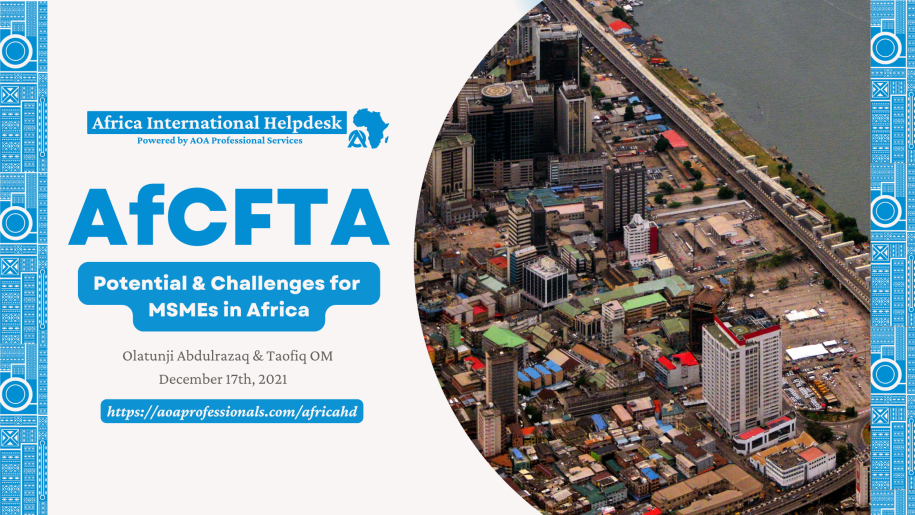In 2018, 54 of the 55 countries that make up the African Union (AU) established the African Continental Free Trade Area (AfCFTA). It was created by the African Continental Free Trade Agreement to be a free trade area to fast-track economic development on the African Continent, especially through the small and medium-sized enterprises (SMEs).
The AfCFTA has opened a $3.4 trillion borderless market created to present an opportunity and rekindle hopes for African recovery through trade in a post-Covid-19 world. As nations continue to battle a pandemic that does not respect national borders, the Intra-African trade is currently low at 14.4 percent of total African exports. The United Nations Conference on Trade and Development (UNCTAD) estimates that the AfCFTA could boost intra-African trade by about 33 percent and cut the continent’s trade deficit by 51 percent.
The latest Economic Development report shows that about 34 percent of African households live below the international poverty line ($1.9 per day), and around 40 percent of the total wealth is owned by approximately 0.0001 percent of the continent’s population. Then the pandemic has exacerbated inequalities and vulnerabilities of marginalized groups, resulting in an additional 37 million people in sub-Saharan Africa living in extreme poverty.
A key question is how economic growth through regional integration can contribute to poverty reduction, cut inequality, and foster inclusive development, which is the main objective of the African Union’s Agenda 2063. Reports have shown that the continent’s current untapped export potential amounts to $21.9 billion, equivalent to 43 percent of intra-African exports. An additional $9.2 billion of export potential can be realized through partial tariff liberalization under the AfCFTA over the next five years.
So what are we saying here?
- With the AfCFTA, the market potential is huge but there is an equally huge challenge, which is that of a wide poverty line in the continent.
- MSMEs are at the centre of leveraging the potential of the market and also solving the problem of poverty through job creation.
- MSMEs would also help reduce over-reliance on foreign goods while enhancing the production of locally made goods which would boost infrastructure within the African Continent.
According to the National Bureau of Statistics (NBS) and the Small and Medium Enterprises Development Agency of Nigeria (SMEDAN), SMEs in Nigeria account for about 96 percent of registered Nigerian businesses, employ about 75 percent of the national labour force, and contribute 48 percent to the country’s Gross Domestic Product (GDP). A 2020 survey of 1,804 MSMEs across Nigeria by the Nigerian Association of Chambers of Commerce, Industry, Mines, and Agriculture (NACCIMA) showed that more than 50 percent of those surveyed were most concerned about the threat posed by imported cheaper goods competing with local products due to the AfCFTA, while only 20 percent were aware of the existence of the AfCFTA.
In conclusion, it’s not just policies and procedural shortcomings that have resulted in limited cross-border trade volumes in Africa. Medium Small and Middle-Scale Enterprises (MSMEs) and other stakeholders in Africa must look deeper into why intra-African trade has been slow to gain traction, leading to Africa’s ongoing heavy reliance on imports and taking advantage where necessary to grow their business and market share in Africa.
DISCLAIMER:
The material contained in this publication is provided for general information purposes only and does not contain a comprehensive analysis of each item described. Before taking (or not taking) any action, readers should seek professional advice specific to their situation. No liability is accepted for acts or omissions taken in reliance upon the contents of this alert.
AOA Professional Services is an indigenous tax, regulatory and advisory service firm driven by the values of professionalism and partnership. For further information on the subject matter, reach out to our Africa International Helpdesk

